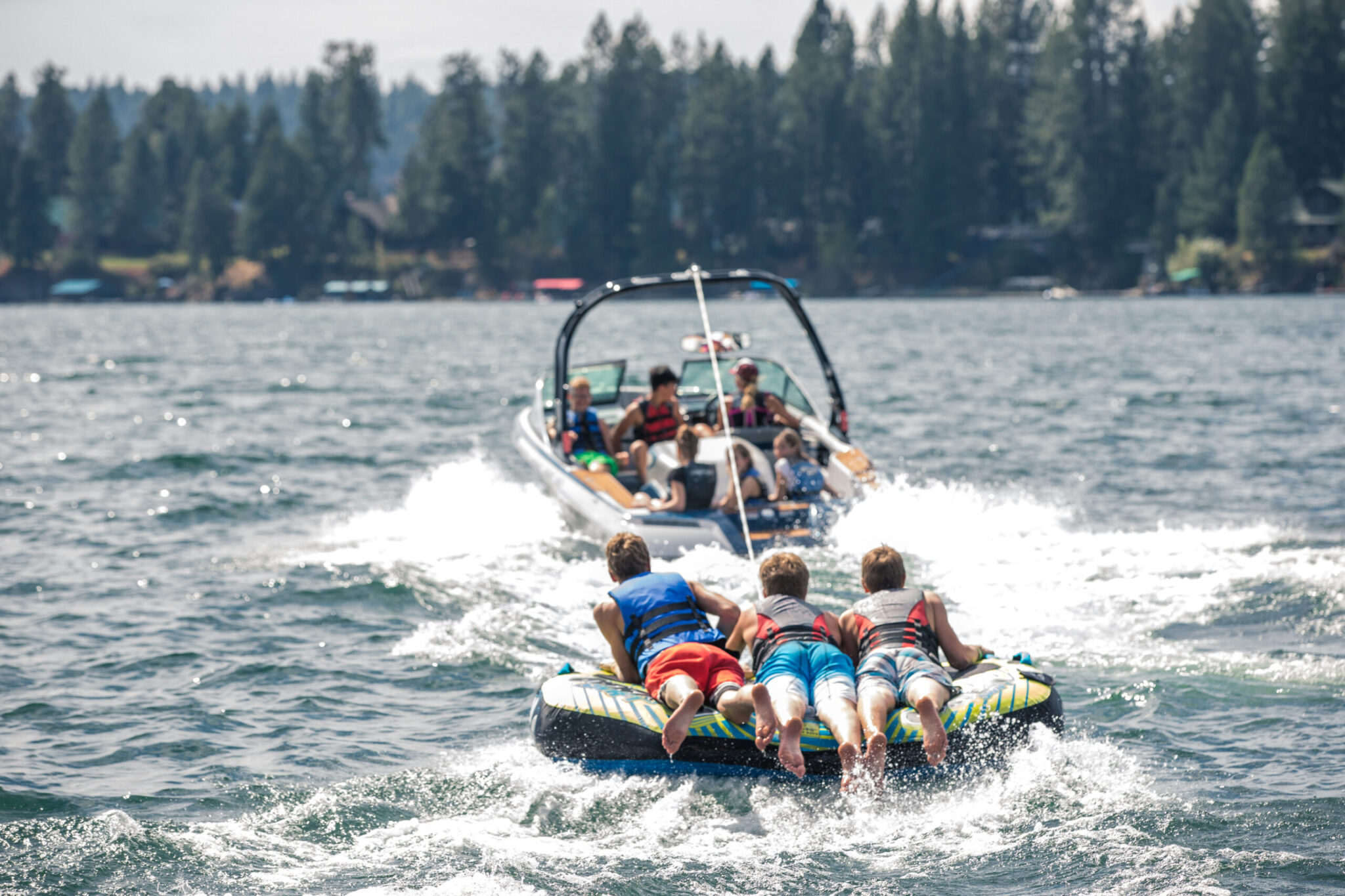There are a quarter of a million lakes in Ontario (yes, 250,000 of them!). And now that we’re into the warmer weather, they’re all poised and ready for your summer pleasure. People of all ages will be heading to the cottage, or just up north to the lakes. That means fun and frivolity on the water… But if proper care isn’t taken, it could also mean tragic consequences.
Most importantly, to be properly prepared to operate a boat on Ontario’s waters, everyone must obtain training from a Transport Canada–approved boater safety course and take an online Safety Test.
The information gleaned in the course could save lives.
Ontario law requires that everyone who operates a motorized vessel must have a Pleasure Craft Operator Card (which is commonly referred to as a ‘boating licence’). This is a three-step process:
- Take a Canada Boating Safety Course online
- Pass your online Transport Canada Boating Safety Test
- Print your temporary certificate and keep it with you until you receive the official Card
The card is required for all motorized boats, regardless of length or engine size (this includes personal watercraft like Sea-Doos). Non-motorized craft such as canoes or kayaks are exempt.
The Safety Course can be taken at any of these online sites:
- Ace Boater
- BOATsmart
- Boater Exam.com
- Boating Courses.ca
- boat-ed
- Drive a Boat Canada
- My Boat Card.com
What are the age requirements to drive a boat in Ontario?
In Ontario, there are different age and horsepower restrictions in order to be able to operate a vessel on the water:
- No children under the age of 12 may operate a powerboat with more than a 10-horsepower engine.
- Children from the age of 12-15 may only operate a boat unsupervised if it’s 40 horsepower or less.
- Anyone operating a personal watercraft must be at least 16 years of age.
What If I Don’t Have a Pleasure Craft Operator Card?
The consequences of not having a legal PCOD when operating a motorized vessel start with a fine, but could turn out to be much more costly than that.
“If a pleasure craft operator causes a marine accident, the insurance company will likely deny coverage to the operator if they do not have a pleasure craft operating card,” says Brian Horowitz of Horowitz Injury Law. “Failure to have a boater’s license is a breach of the policy.
“In recent years, I have been contacted by several personal watercraft operators who were involved in accidents and were operating a pleasure craft without a boater’s license. Without insurance coverage, they are on their own to defend themselves. This involves retaining and paying for a lawyer, and being personally responsible to pay any damages if they are found by a court to be at fault.”
Skipping the boating safety course can also lead to serious consequences. Not being aware of the many hazards and safety precautions needed while boating on Ontario’s lakes could lead to disastrous, tragic or even deadly results.
There are dozens of boating deaths in Ontario each year, and over a third of those involve another hazard that all boaters need to be aware of: alcohol.
An astounding number of boating accidents (65%) and boating deaths (40%) involve alcohol.
What are tips for safe boating?
There are plenty of safety tips that pleasure craft operators need to know, all of them covered in the training course. Get an overview of the Top 5 most important boating safety tips here, then take the course.
If, in a worst-case scenario, you or a loved one is involved in a serious boating accident, the Marine Liability Act applies. Unfortunately, there is a limitation of liability with this Act that is extremely difficult to overcome.
“For the typical boating accident involving a pleasure craft, the Marine Liability Act imposes a $1,000,000.00 limitation of liability for each involved vessel for personal injury or death,” explains Mr. Horowitz. “Regardless of the liability limits of the insurance policy, all potential claims arising out of the accident would be limited to a single fund of $1,000,000.00.
“In a serious accident involving catastrophic injuries or death, the limitation of liability is disastrous. The Supreme Court of Canada has made it abundantly clear that the exceptions to this limitation are extraordinarily rare,” continues Mr. Horowitz. They would be limited to incidents such as a boat operator “intentionally causing an accident or doing so recklessly with the knowledge that such loss would probably occur.”
What all this means is that any accident involving ordinary negligence or carelessness—which make up the vast majority of boating accidents—would have the limitation of liability imposed.
Trust Horowitz Injury Law to help you get the compensation you deserve. They have over 35 years of experience dealing with boating negligence. Contact them to get a free consultation. 416-925-4100.




